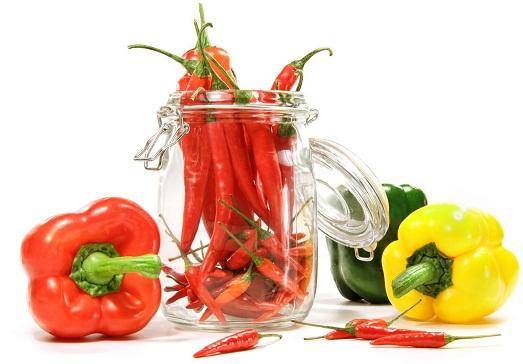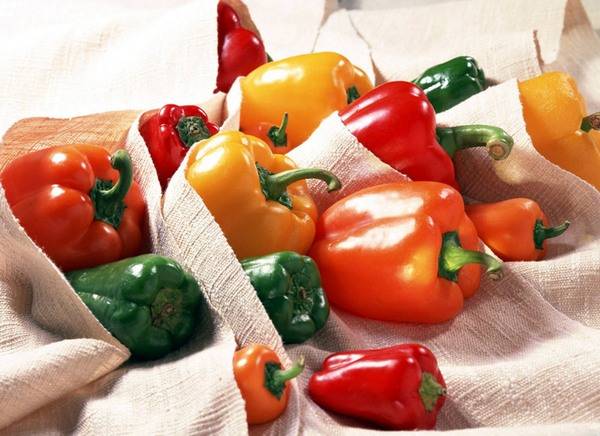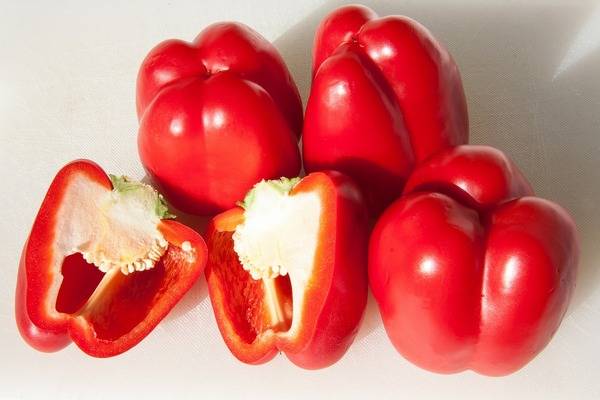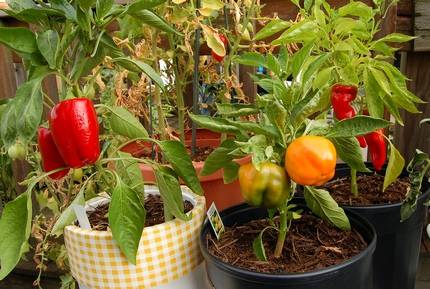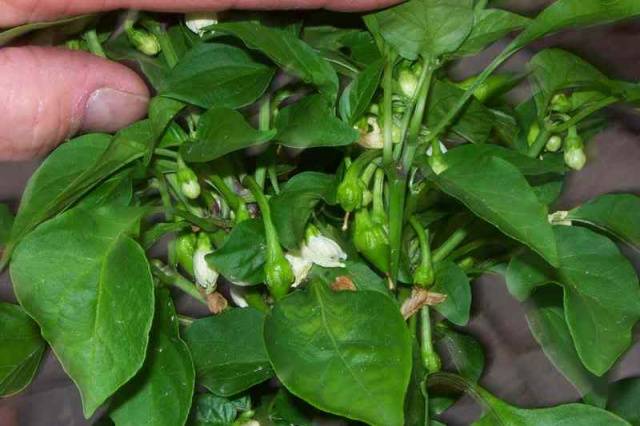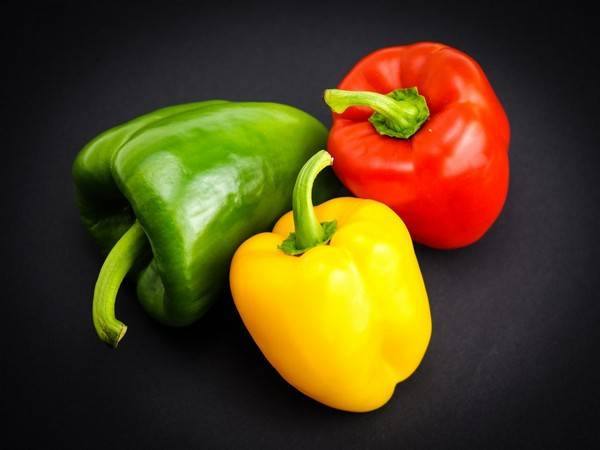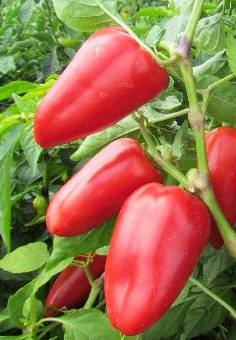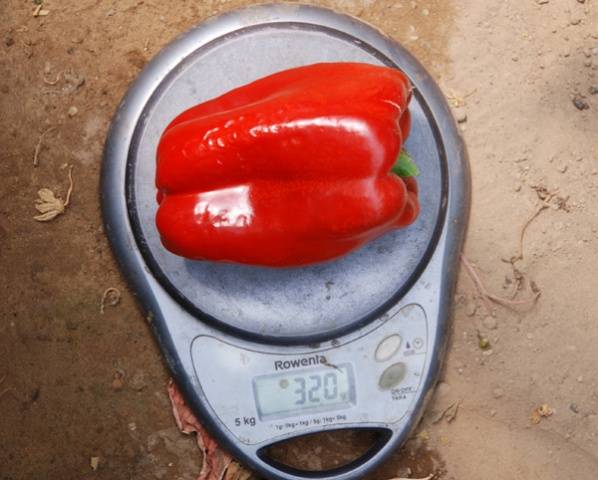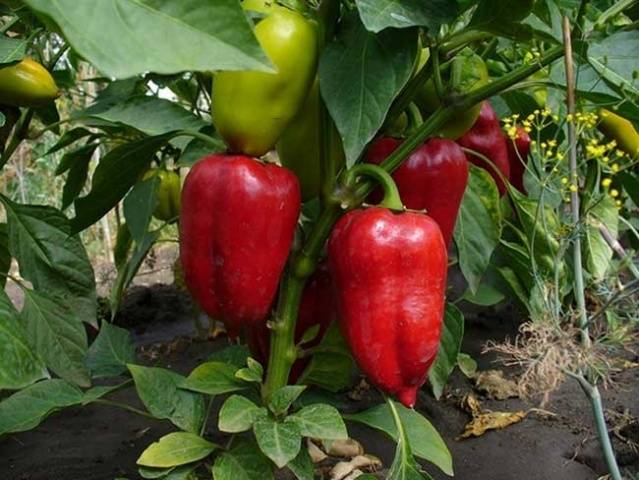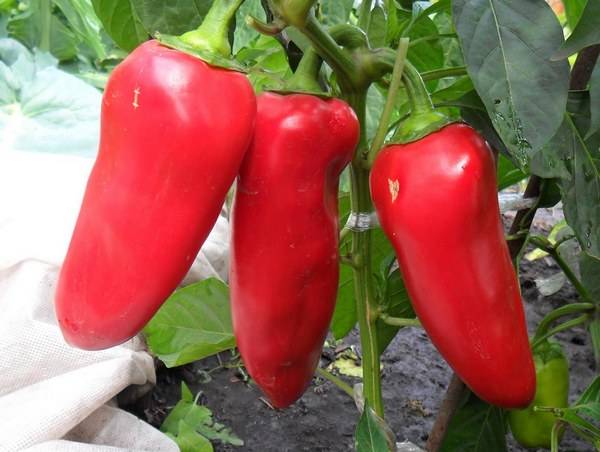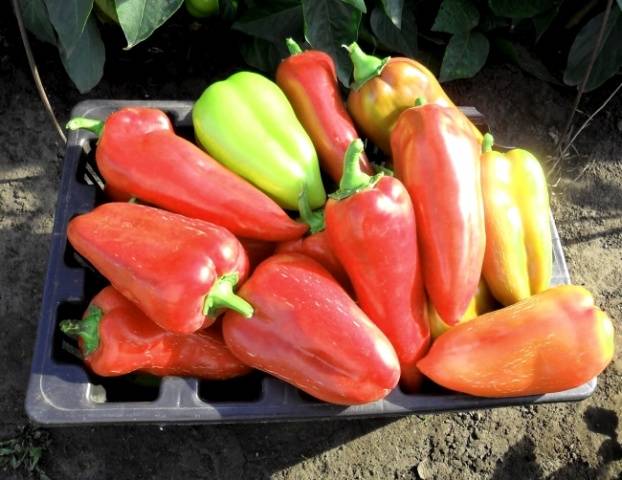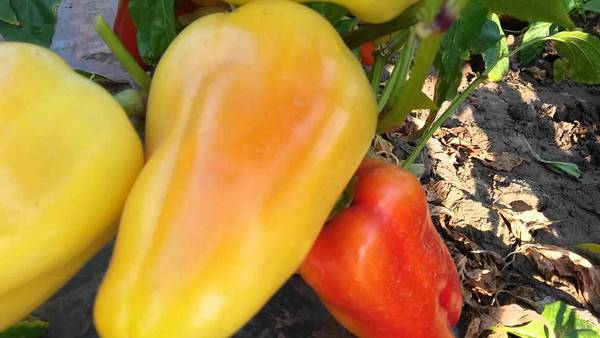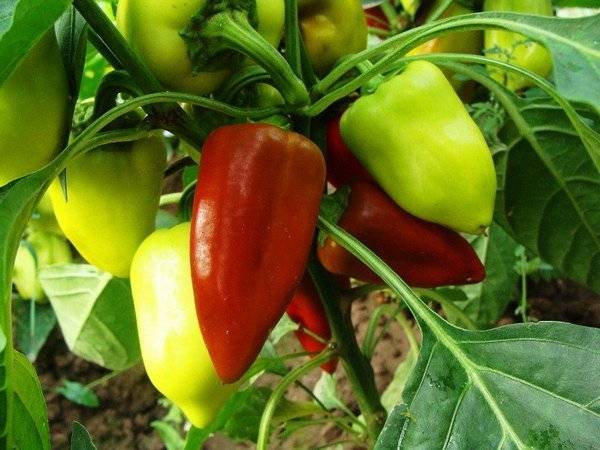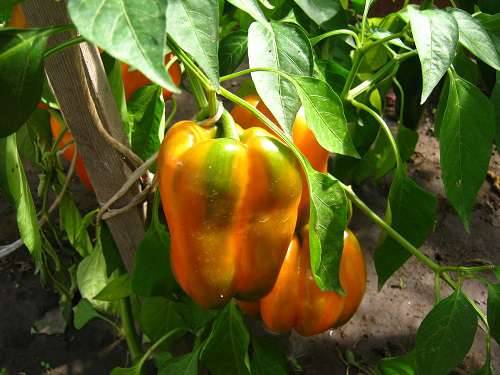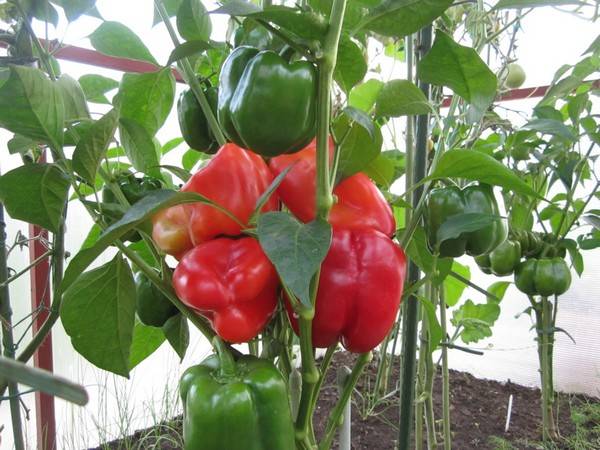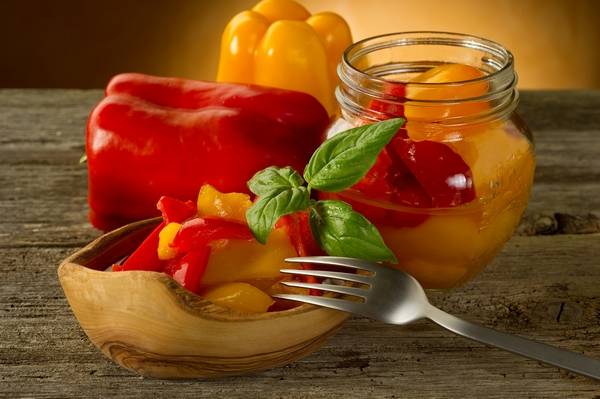Content
By choosing the best variety of pepper for 2019, first of all, you need to understand that there are no such "magic" varieties that will bring gigantic harvests without outside help. The key to a good harvest is always human labor. Modern agrotechnical methods help to achieve the highest results. Of course, the seed material also plays an important role - the better the seeds, the more abundant and healthier the seedlings will be.
To the question: "Which pepper is better?" there is no definite answer. And yet, we will try to name the best varieties of pepper for 2019, based on unpretentiousness, productivity and plant resistance. We will also tell you about the rules for growing different varieties of this capricious and thermophilic culture.
The benefits of bell pepper
On a summer day, having beds with fresh bell peppers on hand - have access to a source of all the necessary vitamins. The yellow and red fruits of bell peppers contain a huge amount vitamin C... There is even more of it in pepper than in black currant and lemon.
Another very useful element is routine, or vitamin P... Together with vitamin C, this component helps to strengthen the walls of blood vessels, reduces their permeability and fragility.
Row B vitamins helps to cope with insomnia, weakness and depression. It will also be useful for people suffering from diabetes and edema.
Oddly enough, but vitamin A bell peppers even more than carrots. But this vitamin returns beauty to hair and nails, improves skin, strengthens eyesight.
Bell peppers are good in many dishes, can be canned and pickled, but fresh vegetables are the healthiest. Peppers in salads and snacks will provide the body with a daily dose of all essential trace elements and vitamins.
Pepper care rules
Reviews of gardeners who have been growing peppers for more than one year indicate that this is not so difficult. It takes a little effort and patience to get a big harvest.
Pepper has a fairly long growing season - from 80 to 130 days. Even in the south of Russia, the culture will not have time to ripen if pepper is planted with seeds in the ground. In order for plants to bloom well and grow quickly, it is better to plant them in seedlings.
The basic rules for growing bell pepper look like this:
- The site is chosen in the fall - it should be a place well lit by the sun and protected from the wind.
- Peppers love soil that is loose, saturated with oxygen. Therefore, if the soil on the site is clay, it must be mixed with rotted sawdust, ash, peat.
- It is safest to grow heat-loving peppers in a shelter. If there is no greenhouse on the site, ordinary beds will do. If possible, you need to install arcs over the beds, cover the plants with polyethylene or agrofibre at night. It is preferable to cover the seedlings at night before June 15, on the following days you can lift the edges of the film, but not remove it completely.
- The branches of the pepper are very fragile, and the roots are close to the surface of the earth. Therefore, together with the planting of seedlings, it is necessary to insert a wooden peg near each seedling. When the bush grows, it must be tied up to maintain the integrity of the shoots.
- It is better to sow seeds for seedlings immediately in individual containers - pepper does not like transplanting, it is better not to dive. When planting plants in a permanent place, it is better to cut the cups in order to transfer the bush along with the earthy clod.
- After transplanting, the pepper does not need to be watered for about five days, regular loosening of the soil is enough. In the first two weeks, the seedlings will be weakened and painful, they do not need excess moisture.
- For the entire season, plants need to be fed at least three times. This is done at the time of flowering and during the ripening period of the fruit.
- Pour pepper only with warm water. Cold water will inhibit the growth of bushes and discard ovaries. It is best to use settled water.
- Before the flowering period, the pepper is watered by sprinkling - water is sprayed from a watering can throughout the bush. During the period of formation and ripening of fruits, it is necessary to water the bushes at the root.
- The soil should be constantly plowed to a depth of about 5 cm. Pepper roots need air.
The best varieties of peppers
The varieties listed below are selected by several factors:
- yield;
- the quality of the fruit;
- unpretentious care;
- resistance to diseases and viruses.
According to the photo and description, you can easily choose the variety suitable for each specific case for 2019.
It is also important to remember that the best gardeners buy pepper seeds only from trusted manufacturers... From non-hybrid fruits, seeds can be harvested by yourself. To do this, choose the most beautiful peppers with the correct shape and uniform color. The top is carefully incised on them and the testis is pulled out. In this form, they are left to dry for 3-4 days at a temperature of 20-25 degrees. After that, the seeds are folded into a paper bag.
"Prince Silver"
The variety belongs to the early ripening, the fruits ripen by the 100th day after planting the seeds. For seedlings, seeds are sown at the end of February or in the first half of March. Seedlings can be transferred to the greenhouse by mid-May, and pepper is planted in open ground only when constant heat is established. There should be no frosts at night, and the earth should warm up to at least ten degrees.
The peppers are conical and small in size. The mass of one pepper does not exceed 100 grams. At the stage of technical maturity, the fruit of this variety is colored yellow, after full ripening it turns red.
The wall thickness of the vegetable reaches 6.5 mm, which makes it juicy and tasty. Peppers of this variety can be processed, canned, stuffed, added to salads and other dishes.
The variety is protected from most diseases. Brings high yields - about 2.5 kg of ripe fruits can be removed from each bush (height up to 65 cm).
"Hercules"
This variety belongs to the mid-season, therefore it is suitable for cultivation throughout the territory of Russia. Seeds for seedlings are sown in mid-March, and the seedlings are transferred to the ground after the onset of constant heat (in the second half of May).
The bushes are spreading, their height is small - 40-60 cm. The variety is suitable for growing both in a film greenhouse and in an open bed. It is better to cover the seedlings from the cold night with a film.
The peppers themselves are cube-shaped, rather large - the mass of one can reach 300 grams. At the stage of technical maturation, the Hercules pepper is colored bright green, after biological maturity it becomes bright red.
The wall thickness of the vegetable is up to 5.5 cm, its pulp is juicy and very aromatic. This variety is good in salads, appetizers, it can be stuffed and canned.
The plant is resistant to a variety of diseases. Up to 3 kg of peppers can be removed from each bush.
"Arsenal"
A variety with medium ripening periods. Suitable for growing in any greenhouse, as well as in the open field. For seedlings, seeds are sown after March 15th, the plants are transferred to a permanent place by mid-May. The timing of planting a variety in open ground depends on the climatic characteristics of the region - this should be done only when the heat is established and the threat of frost passes.
The fruits have a conical shape, standard for sweet peppers. Their size is average - the weight of each does not exceed 120 grams. At first, the peppers are colored green, after full ripening they turn red. The wall thickness of the variety is about 5 mm.
The bushes are low - from 35 to 70 cm. With sufficient watering and proper care, more than two kilograms of fruit can be obtained from each Arsenal bush.
"Cow's ear"
This pepper can also be attributed to mid-season varieties, because its fruits ripen on the 110th day after planting the seeds.
The bushes grow medium - their height ranges from 60 to 80 cm. Therefore, it is better to tie up the shoots so that the branches with fruits do not break off. The shape of the fruit is an elongated cone. The surface is smooth and shiny. Initially, the peppers are colored dark green; by the onset of biological maturity, they turn red.
Often the weight of the fruit does not exceed 140 grams, but with proper care, 220-gram peppers of this variety can also be grown. The walls are thick - up to 5.5 mm, the pulp is juicy and very tasty.
A distinctive feature of the variety is the possibility of long-term storage. Another plus of the variety is its high yield (up to 3 kg of fruits per square meter).
"Gift of Moldova"
This pepper is probably familiar to every gardener. The variety belongs to the mid-season, is distinguished by its adaptability - the culture can be successfully grown in regions with different climatic conditions.
The variety is also unpretentious to the composition of the soil - it can be grown on sandy and black earth, and even on clay soils. The variety gives consistently high yields, is protected from the most dangerous diseases, and is suitable for planting in open ground or in any greenhouse.
That is why the "Gift of Moldova" variety is often cultivated in fields and large gardens. It is excellent for sale: it is stored for a long time, has a beautiful appearance and excellent taste.
The fruits of this variety are cone-shaped and medium in size. The weight of each vegetable does not exceed 100 grams, but its walls are very thick - about 7 mm. The flesh is crispy, juicy and very aromatic. This pepper has its own unique taste.
Review of the "Gift of Moldova" pepper
"Poltava"
The variety, tested by time and thousands of gardeners, easily falls into the category of the best for 2019.
Compact bushes of this variety reach a height of 70 cm and need to be tied up. The crop can be grown both in the greenhouse and in the open field. The plant is characterized by resistance to cold and a long fruiting period.
Even in the most severe climatic conditions, the variety gives stable yields - peppers of medium size, the weight of which does not exceed 120 grams. The wall thickness of the vegetable is more than 5 mm, which makes it juicy and appetizing. The color of the fruit is green at first, later the peppers turn red. Inside the vegetable there are four chambers with seeds, which can be safely harvested for growing the next crops.
Peppers of the "Poltavsky" variety are universal: they are suitable for preparing salads, various dishes, stuffing and canning.
The fruits are formed at the same time and ripen quickly. The plant bears fruit within 100 days. The culture is not afraid of top rot, verticillosis, night frosts. Vegetables of this variety are considered one of the most mature - peppers can be stored for about three months.
"Lumina"
On the 115th day after planting the seeds, you can taste the fruits of the "Lumina" variety. This bell pepper has long been known to gardeners and summer residents, most often, the variety is grown in the south of the country.
The culture is also suitable for cultivation in greenhouse conditions. The plant is considered resistant to most viruses and diseases. Bushes grow compact - up to 60 cm in height.
The fruits have a cone shape and an unusual color - at the stage of technical maturity, they are pale golden with a milky sheen. After the onset of biological ripeness, they become bright red.
The average weight of peppers is about 110 grams. Their walls are thick - up to 5 mm. The taste of this vegetable cannot be confused with anything - the Lumina pepper variety has its own pronounced aroma.
Another advantage is the possibility of transportation and long-term storage. This variety is one of the best-selling varieties.
"Orange miracle"
These wonderful fruits can be enjoyed within 95 days after the seeds were sown for seedlings. A distinctive feature of the variety is the bright orange hue of vegetables. Such peppers look great in salads and seaming, they are delicious fresh and various dishes.
The bushes of this variety are quite high - more than a meter. They must be tied up, it is better to grow them in a greenhouse or on a garden bed protected from the wind.
The fruits are very large - the weight of each exceeds 250-300 grams, and the length is 12 cm. The shape of the vegetable is cuboid, the walls are thick - up to 7 mm.
The plant is resistant to a variety of diseases and viruses, the variety can be grown in any region of the country.
"California miracle"
This mid-season variety is known all over the world - it is grown not only by domestic gardeners. The first ripe fruits appear only on the 125th day after planting the seeds. Therefore, it is better to grow "California Miracle" by seedling in a greenhouse. But you can cultivate it in ordinary beds, covering the plants with a film at night.
The peppers are divided into 3-4 chambers, cube-shaped. The mass of each reaches 180 grams - the pepper is large enough. The walls are about 7 mm thick. The pulp is juicy, aromatic, with an unsurpassed paprika taste.
Ripe vegetables are colored dark green, then turn red or yellow (there are two varieties of the variety).
On each bush, about 5-6 peppers are tied, which allows you to get about 1.2 kilograms of harvest from one plant.
The plant is resistant to verticillium. They love the variety for its unpretentiousness and excellent taste.
What will help you get a high yield of pepper
There is no “potion” that will make pepper bushes fertile and persistent. This capricious plant needs regular care, pepper is not a culture that you can "visit" only on weekends.
In addition to a number of diseases and viruses, pests threaten plants, they must be detected and eliminated in time.All this takes the owner's time and labor. But, if you take good care of the pepper, it will give you a treasure trove of vitamins and useful microelements, help to improve your health and just enjoy the unsurpassed taste.
From the rating for 2019, you can safely choose any variety, all of them are worthy of the attention of farmers and, by right, are considered the best seeds of peppers. For a colorful assortment in jars and on plates, choose the colorful bell peppers.
